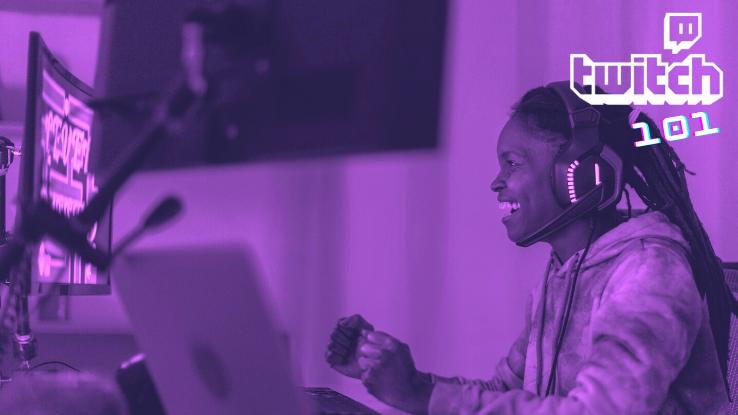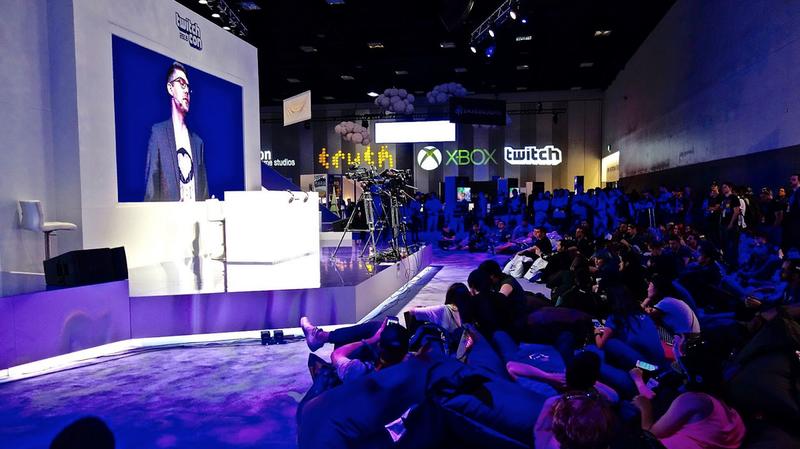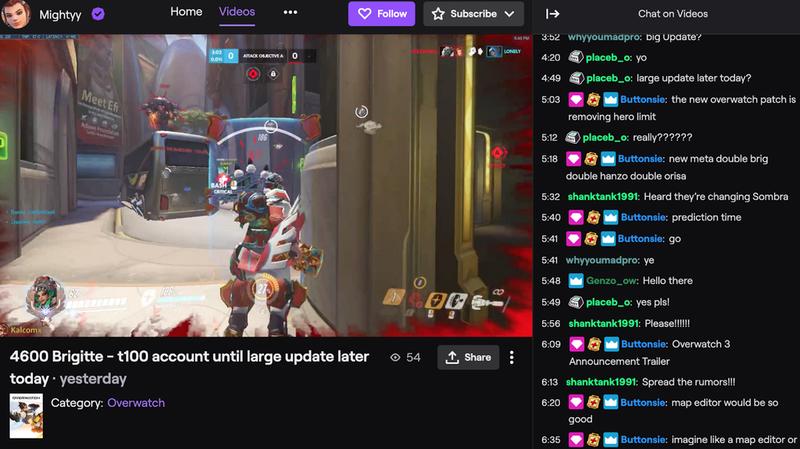
Although Twitch boasts that it’s the leading streaming platform for gamers, it’s so much more than that. For the unanointed, Twitch is a live-video streaming service and, these days, an Amazon subsidiary. But back in 2011, before the service hit it big, Twitch was a spin-off of the general-interest streaming service called Justin.tv. In a sense, Twitch was like a “channel,” and one that focused on video game streaming, like “Let’s Plays” or walkthroughs — viewers watch gamers play through a title — and competitive eSports matches. Now, the platform features a myriad of creative content, “in real life” streams, music broadcasts and a wide range of Twitch personalities akin to YouTube stars.
Although Twitch was meant to be a niche subset of Justin.tv, it gained 45 million unique viewers by October 2013 and, by the following February, it became the fourth-largest source of peak internet traffic in the U.S., falling just behind giants Netflix, Google and Apple. And Justin.tv? It was renamed Twitch Interactive before finally shuttering in August — all of the company’s resources were being poured into Twitch, not any of the other content categories or initiatives. The same month that what was formerly known as Justin.tv ceased to exist, Amazon purchased Twitch Interactive for a staggering $970 million — and the platform became the official live-streaming platform of the Electronic Entertainment Expo (E3), the video game industry’s premier trade event. All of these big wins led to even more tremendous growth and, in a year’s time, Twitch boasted a whopping 100 million viewers per month, all of whom were watching content produced by over 1.5 million broadcasters.
By 2017, what was once a niche site eclipsed even YouTube Gaming, becoming the leading live-streaming service for video games in the U.S. Needless to say, Twitch’s rise to popularity amongst gamers and more mainstream viewers (or folks who might identify as “non-gamers”) alike happened quite quickly. But why the big uptick in February 2014? We’re not saying it was all thanks to Pokémon, but…the popular franchise did help Twitch catch ’em all, in a manner of speaking.
Twitch Plays Pokémon: How the Service Broke Into the Mainstream
Chances are you first heard about Twitch thanks to the viral sensation Twitch Plays Pokémon, a live stream that showed a crowdsourced attempt to play through Pokémon Red Version with the help of a system that translated chat commands into game controls. Back in 1998, Nintendo’s Pokémon Red Version and Pokémon Blue Version were THE portable role-playing games to have for your Game Boy (or Game Boy Color). According to the 2009 version of the Guinness Book of World Records, these first Pokémon are the best-selling RPGs of all time. Needless to say, their popularity endures, and not just because of the Pokémon craze that swept the world in the late ’90s and early 2000s.

From an overhead perspective, the player controls the game’s protagonist, a young Pokémon trainer who travels the world capturing the creatures and forcing them to battle other trainers so that said creatures on your team level up and gain new skills. A few of these foes, known as Gym Leaders, give the protagonist badges for their victory; once you collect all eight badges, you’re granted access to the “Pokémon League” — a collection of trainers who see if you’ve got what it takes to be crowned a Pokémon Master. All in all, it’s a pretty straightforward game with a lot of replay value, especially because there are 150 unique types of Pokémon to collect and train. Accessible, addicting and universally beloved, Pokémon seems like an obvious choice for a stream, but it was the crowdsourced attempt to complete the game that made the Twitch stream stand out.
Halfway through February, the channel surged to over 6.5 million total views. On average, 60,000 or 70,000 viewers were watching live at any given time, with roughly 10% of those viewers inputting commands and participating in the game. Matthew DiPietro, Twitch’s then-VP of Marketing, noted that Twitch Plays Pokémon represented the way in which video games have become both entertaining and creative in a way that goes beyond the games’ creators’ original intent. “By merging a video game, live video and a participatory experience, the broadcaster has created an entertainment hybrid custom made for the Twitch community,” DiPietro said. “This is a wonderful proof of concept that we hope to see more of in the future.” In the end, an estimated 1.16 million people participated, and the social experiment garnered 55 million views. It even spawned a religion — sort of.
Twitch Reshapes eSports
The growing interest in streams like Twitch Plays Pokémon, traditional walkthroughs, speed-run/challenge playthroughs and more combined with the success Twitch was seeing as a platform dedicated to broadcasting eSports as well. By the end of 2014, Twitch acquired GoodGame Agency, an organization that owns eSports teams Evil Geniuses and Alliance. In 2017, Twitch signed a two-year deal with Blizzard Entertainment to be the sole broadcaster of their eSports championship events, and, later, Twitch became the exclusive broadcaster of Overwatch League, a professional eSports league dedicated to Blizzard’s ever-popular team-based FPS Overwatch.

However, Twitch’s dominance in the world of esports wasn’t lasting. In 2020 Blizzard signed a deal with YouTube, granting the platform exclusive streaming rights to popular esports broadcasts. In 2018, Twitch accounted for 74% of total esports broadcasting, but that number has since dropped to 57% in 2022, with YouTube now enjoying 30% of esports viewership. That gap is expected to continue closing. Which isn’t to say that Twitch is definitely falling from grace, but we will get to see what some healthy competition produces in the two platforms.
Twitch has also invested in online video-gaming communities and personalities: By acquiring Curse, Twitch has allowed streamers to receive commissions if viewers follow purchase links to games on the streamers’ channels; Amazon Blacksmith makes it possible for streamers to display related products on their videos; the feature known as “Cheering” — a form of emoticon purchased through a microtransaction — allows viewers to donate to channels; and the acquisition of the Internet Games Database (IGDb) has allowed Twitch to improve its internal search features, giving users greater access to games and channels that might interest them.
Apart from these user-friendly features and monetization efforts, Twitch has also invested in its community — and the personalities that make the platform a true YouTube competitor. While top streamers like DrLupo and TimTheTatman jumped ship for YouTube in early 2022, familiar faces like Ninja have returned. Still, prominent streamers have complained that industry success requires unreasonably long hours and makes taking vacations near impossible, and a number of content creators are reporting experiences of burnout.
There’s No Such Thing as Overwatching on Twitch
While popular games, like Overwatch, Fortnite and Dota 2 reeled in a combined total of hundreds of millions of hours watched, Twitch also broke into broadcasting live musical performances from nightclubs and festivals. A category dubbed “Creative” is dedicated to showcasing artistic works, like Bob Ross’ The Joy of Painting and Mister Rogers’ Neighborhood marathons. And the “IRL” category allows broadcasters to show off lifelogs (video blogs of their daily lives). A dedicated ASMR (autonomous sensory meridian response) channel allows followers to discover sounds that trigger relaxation; these types of videos are so popular that ASMR broadcaster MaryJLeeee‘s videos have 10 million views. Twitch even started up a “Social eating” channel in 2016, inspired by the fact that Korean players enjoy intermissions between gaming streams.

Let’s go back to the beginning for a second. The streaming platform gets its name from what’s known as “twitch gameplay,” a type of gameplay scenario that tests a player’s response time, as opposed to a turn-based game that isn’t concerned with keeping a player actively engaged at all times. Games that harness “twitch gameplay” range from shooters like Call of Duty to fighting games like Mortal Kombat to something as simple as Atari’s arcade table tennis game Pong. However, despite its deep ties to gaming — from its moniker to its breakout, viral moment — Twitch has bloomed far beyond being a niche service. As of May 2022, Twitch boasted 9.2 million monthly streamers and 30 million daily users.






